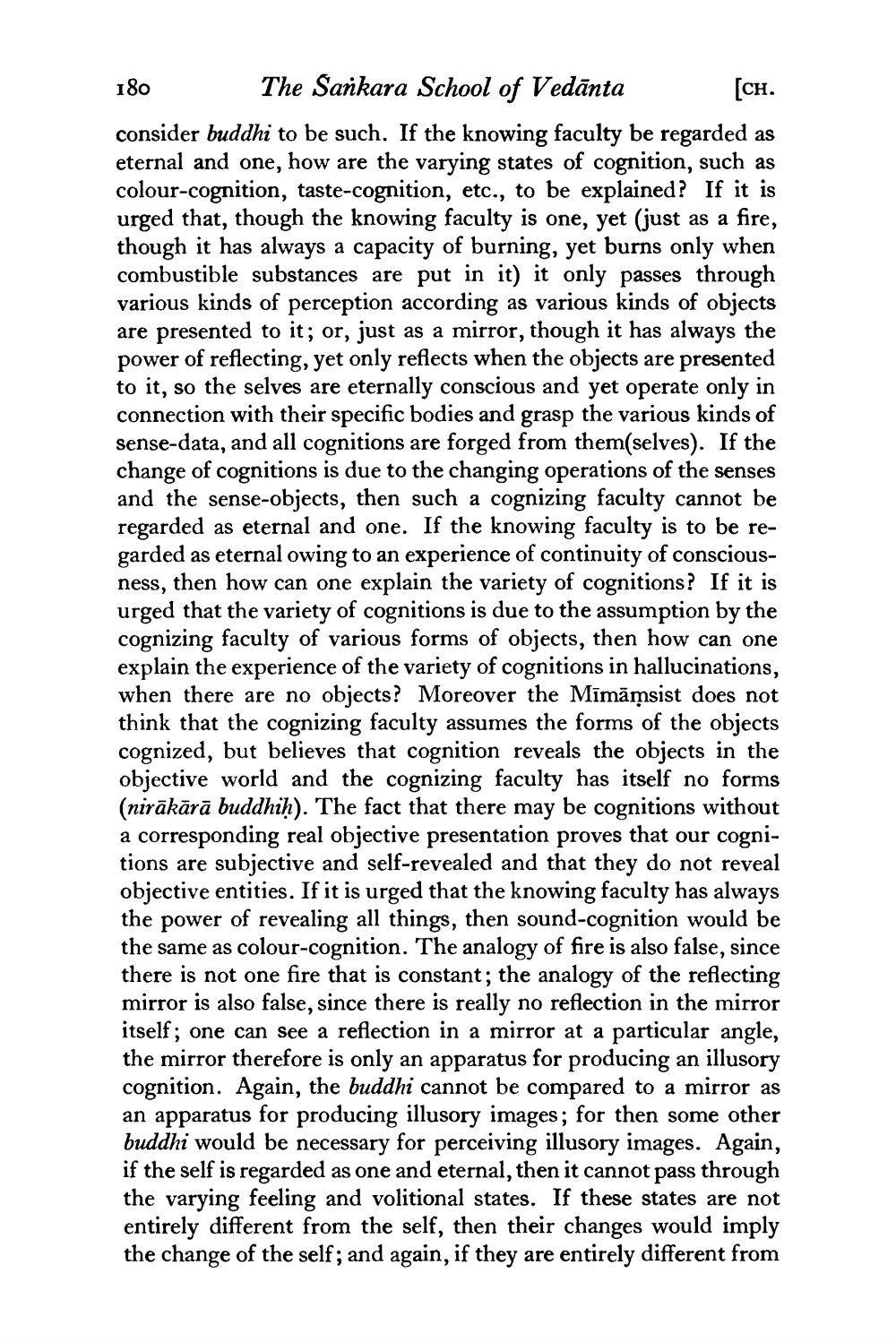________________
180
The Sankara School of Vedānta The Sarkare Sche
[CH. consider buddhi to be such. If the knowing faculty be regarded as eternal and one, how are the varying states of cognition, such as colour-cognition, taste-cognition, etc., to be explained? If it is urged that, though the knowing faculty is one, yet (just as a fire, though it has always a capacity of burning, yet burns only when combustible substances are put in it) it only passes through various kinds of perception according as various kinds of objects are presented to it; or, just as a mirror, though it has always the power of reflecting, yet only reflects when the objects are presented to it, so the selves are eternally conscious and yet operate only in connection with their specific bodies and grasp the various kinds of sense-data, and all cognitions are forged from them(selves). If the change of cognitions is due to the changing operations of the senses and the sense-objects, then such a cognizing faculty cannot be regarded as eternal and one. If the knowing faculty is to be regarded as eternal owing to an experience of continuity of consciousness, then how can one explain the variety of cognitions? If it is urged that the variety of cognitions is due to the assumption by the cognizing faculty of various forms of objects, then how can one explain the experience of the variety of cognitions in hallucinations, when there are no objects? Moreover the Mīmāmsist does not think that the cognizing faculty assumes the forms of the objects cognized, but believes that cognition reveals the objects in the objective world and the cognizing faculty has itself no forms (nirākārā buddhiḥ). The fact that there may be cognitions without a corresponding real objective presentation proves that our cognitions are subjective and self-revealed and that they do not reveal objective entities. If it is urged that the knowing faculty has always the power of revealing all things, then sound-cognition would be the same as colour-cognition. The analogy of fire is also false, since there is not one fire that is constant; the analogy of the reflecting mirror is also false, since there is really no reflection in the mirror itself; one can see a reflection in a mirror at a particular angle, the mirror therefore is only an apparatus for producing an illusory cognition. Again, the buddhi cannot be compared to a mirror as an apparatus for producing illusory images; for then some other buddhi would be necessary for perceiving illusory images. Again, if the self is regarded as one and eternal, then it cannot pass through the varying feeling and volitional states. If these states are not entirely different from the self, then their changes would imply the change of the self; and again, if they are entirely different from




